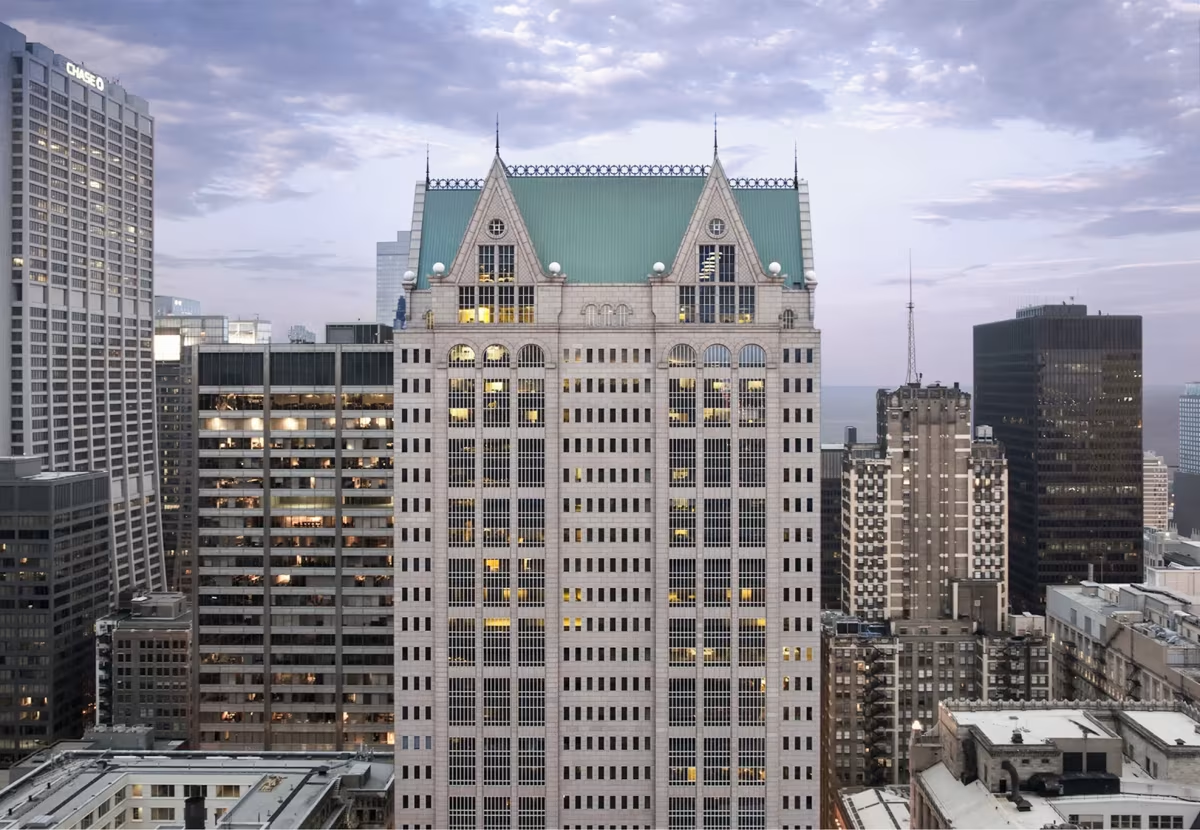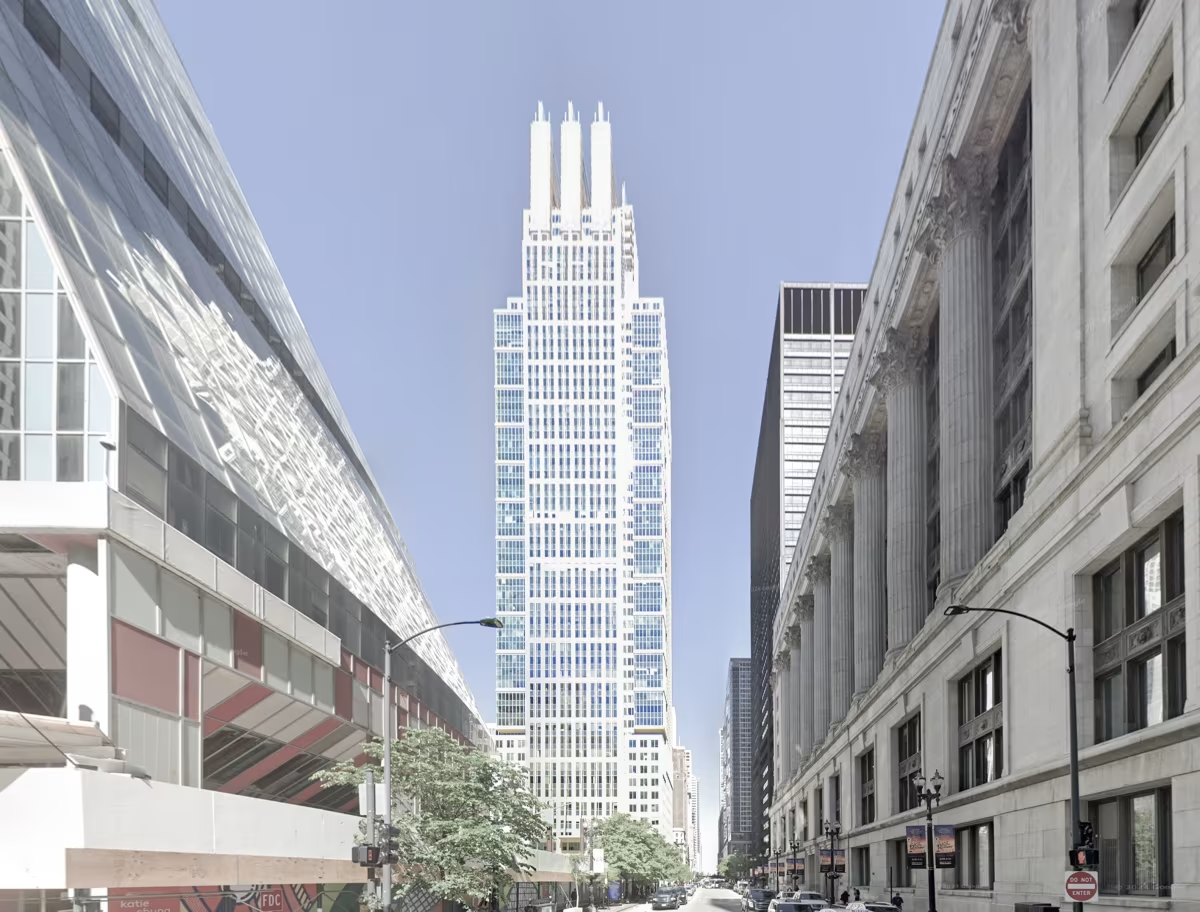190 South LaSalle Street vs Grant Thornton Tower


Comparing the 190 South LaSalle Street and the Grant Thornton Tower is interesting because they both stand in Chicago, IL, and were completed within 5 years of each other, but they were designed by different architects.
This offers a unique glimpse at how rival designers approached projects in the same city during the same era.
Height & Size
The Grant Thornton Tower is clearly the larger tower of the two, both in terms of height and number of floors. It rises to 755ft (230m) with 50 floors above ground, while the 190 South LaSalle Street reaches 574ft (175m) with 40 floors above ground.
Of course, each project may have faced different briefs or regulatory constraints, which we don't really know about and could also explain the outcome.
Architectural Style
Both the 190 South LaSalle Street and the Grant Thornton Tower were designed in line with the aesthetic conventions of the Postmodernism style.
The Grant Thornton Tower was designed at a moment when the Postmodernism style was already in decline, making it more of a lingering expression of the movement. In contrast, the 190 South LaSalle Street was built when the style still carried greater cultural weight.
Uses
Both the 190 South LaSalle Street and the Grant Thornton Tower were designed to serve as commercial towers, and that has remained their main use since their completion, serving similar roles in the urban fabric.
The 190 South LaSalle Street also provides 55 parking spaces.
Structure & Facade
Both towers share the same structural solution, a Frame system.
A frame structure uses a grid of columns and beams to carry the building's loads. This frees the walls from structural duties, allowing for flexible floor plans and larger windows.
However, when it comes to the facade, both buildings use different approaches. The 190 South LaSalle Street uses a Modular facade, while the Grant Thornton Tower uses a Curtain Wall facade.
A Modular facade like the one seen in the 190 South LaSalle Street employs prefabricated panels, often mixing solid surfaces with smaller windows, while a curtain-wall facade like the one seen in the Grant Thornton Tower uses a lightweight glass curtain wall hung from the structure.
| 190 South LaSalle Street | Grant Thornton Tower | |
|---|---|---|
| Johnson/Burgee Architects | Architect | Kohn Pedersen Fox Associates |
| 1985 | Construction Started | 1990 |
| 1987 | Year Completed | 1992 |
| Postmodernism | Architectural Style | Postmodernism |
| Commercial | Current Use | Commercial |
| 40 | Floors Above Ground | 50 |
| 175 m | Height (m) | 230 m |
| 74,209 m² | Usable Area (m²) | 105,166 m² |
| 20 | Number of Elevators | 23 |
| Frame | Structure Type | Frame |
| Steel | Vertical Structure Material | Reinforced Concrete |
| Steel, Concrete | Horizontal Structure Material | Reinforced Concrete |
| No | Facade Structural? | Yes |
| The John Buck Company | Developer | Linpro Company |
| Cohen Barreto Marchertas | Structural Engineer | Severud Szegezdy Associates |
| IL | State | IL |
| Chicago | City | Chicago |
| 190 South LaSalle Street | Address | 161 171 North Clark Street |